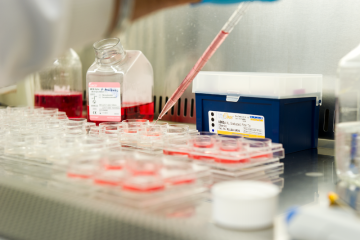Strategic grant
Validation of Scinora serum-free media formulations and Xplace supplement for the development of animal-free NAMs for nanotoxicology

At a glance
Completed
Award date
October 2024 - March 2025
Grant amount
£79,859
Principal investigator
Dr Fiona Murphy
Co-investigator(s)
Institute
University of Strathclyde
R
- Replacement
